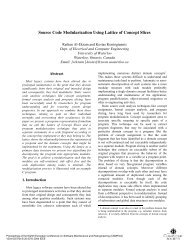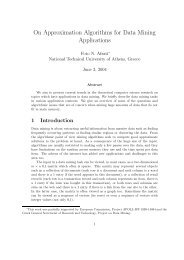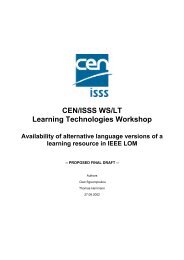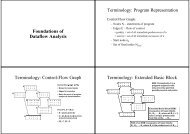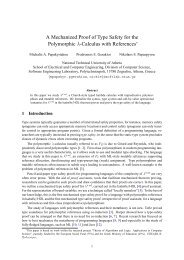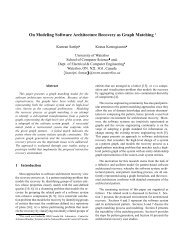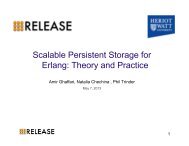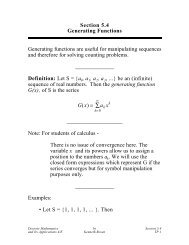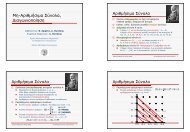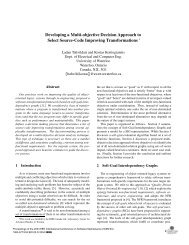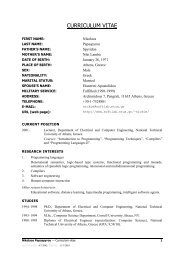Manual
Manual
Manual
You also want an ePaper? Increase the reach of your titles
YUMPU automatically turns print PDFs into web optimized ePapers that Google loves.
122 Bison 2.3<br />
yynerrs<br />
[Variable]<br />
Global variable which Bison increments each time it reports a syntax error. (In a pure<br />
parser, it is a local variable within yyparse.) See Section 4.3 [The Error Reporting<br />
Function yyerror], page 67.<br />
yyparse<br />
[Function]<br />
The parser function produced by Bison; call this function to start parsing. See Section<br />
4.1 [The Parser Function yyparse], page 63.<br />
YYPARSE_PARAM<br />
[Macro]<br />
An obsolete macro for specifying the name of a parameter that yyparse should accept.<br />
The use of this macro is deprecated, and is supported only for Yacc like parsers. See<br />
Section 4.2.4 [Calling Conventions for Pure Parsers], page 66.<br />
YYRECOVERING<br />
[Macro]<br />
The expression YYRECOVERING () yields 1 when the parser is recovering from a syntax<br />
error, and 0 otherwise. See Section 4.4 [Special Features for Use in Actions], page 68.<br />
YYSTACK_USE_ALLOCA<br />
[Macro]<br />
Macro used to control the use of alloca when the C LALR(1) parser needs to extend<br />
its stacks. If defined to 0, the parser will use malloc to extend its stacks. If defined<br />
to 1, the parser will use alloca. Values other than 0 and 1 are reserved for future<br />
Bison extensions. If not defined, YYSTACK_USE_ALLOCA defaults to 0.<br />
In the all-too-common case where your code may run on a host with a limited stack<br />
and with unreliable stack-overflow checking, you should set YYMAXDEPTH to a value<br />
that cannot possibly result in unchecked stack overflow on any of your target hosts<br />
when alloca is called. You can inspect the code that Bison generates in order to<br />
determine the proper numeric values. This will require some expertise in low-level<br />
implementation details.<br />
YYSTYPE<br />
Data type of semantic values; int by default.<br />
Semantic Values], page 46.<br />
[Type]<br />
See Section 3.5.1 [Data Types of



